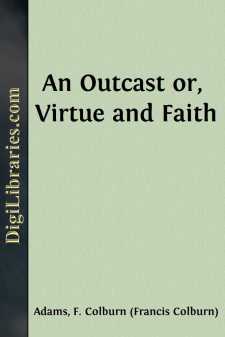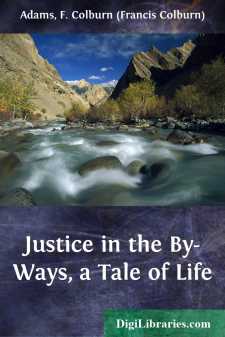Categories
- Antiques & Collectibles 13
- Architecture 36
- Art 48
- Bibles 22
- Biography & Autobiography 813
- Body, Mind & Spirit 142
- Business & Economics 28
- Children's Books 17
- Children's Fiction 14
- Computers 4
- Cooking 94
- Crafts & Hobbies 4
- Drama 346
- Education 46
- Family & Relationships 57
- Fiction 11829
- Games 19
- Gardening 17
- Health & Fitness 34
- History 1377
- House & Home 1
- Humor 147
- Juvenile Fiction 1873
- Juvenile Nonfiction 202
- Language Arts & Disciplines 88
- Law 16
- Literary Collections 686
- Literary Criticism 179
- Mathematics 13
- Medical 41
- Music 40
- Nature 179
- Non-Classifiable 1768
- Performing Arts 7
- Periodicals 1453
- Philosophy 64
- Photography 2
- Poetry 896
- Political Science 203
- Psychology 42
- Reference 154
- Religion 513
- Science 126
- Self-Help 84
- Social Science 81
- Sports & Recreation 34
- Study Aids 3
- Technology & Engineering 59
- Transportation 23
- Travel 463
- True Crime 29
An Outcast or, Virtue and Faith
Categories:
Description:
Excerpt
AN OUTCAST.
CHAPTER I.
CHARLESTON.
This simple story commences on a November evening, in the autumn of 185-. Charleston and New York furnish me with the scenes and characters.
Our quaint old city has been in a disquiet mood for several weeks. Yellow fever has scourged us through the autumn, and we have again taken to scourging ourselves with secession fancies. The city has not looked up for a month. Fear had driven our best society into the North, into the mountains, into all the high places. Business men had nothing to do; stately old mansions were in the care of faithful slaves, and there was high carnival in the kitchen. Fear had shut up the churches, shut up the law-courts, shut up society generally. There was nothing for lawyers to do, and the buzzards found it lonely enough in the market-place. The clergy were to be found at fashionable watering-places, and politicians found comfort in cards and the country. Timid doctors had taken to their heels, and were not to be found. Book-keepers and bank-clerks were on Sullivan's Island. The poor suffered in the city, and the rich had not a thought to give them. Grave-looking men gathered into little knots, at street corners, and talked seriously of Death's banquet. Old negroes gathered about the kitchen-table, and terrified themselves with tales of death: timid ones could not be got to pass through streets where the scourge raged fiercest. Mounted guardsmen patrolled the lonely streets at night, their horses' hoofs sounding on the still air, like a solemn warning through a deserted city.
Sisters of Mercy, in deep, dark garments, moved noiselessly along the streets, by day and by night, searching out and ministering to the sick and the dying. Like brave sentinels, they never deserted their posts. The city government was in a state of torpor. The city government did not know what to do. The city government never did know what to do. Four hundred sick and dying lay languishing in the hospital. The city government was sorry for them, and resolved that Providence would be the best doctor. The dead gave place to the dying by dozens, and there has been high carnival down in the dead-yard. The quick succession of funeral trains has cast a shade of melancholy over the broad road that leads to it. Old women are vending pies and cakes at the gates, and little boys are sporting over the newly-made graves, that the wind has lashed into furrows. Rude coffins stand about in piles, and tipsy negroes are making the very air jubilant with the songs they bury the dead to.
A change has come over the scene now. There is no more singing down in the dead-yard. A bright sun is shedding its cheerful rays over the broad landscape, flowers deck the roadside, and the air comes balmy and invigorating. There has been frost down in the lowlands. A solitary stranger paces listlessly along the walks of the dead-yard, searching in vain for the grave of a departed friend. The scourge has left a sad void between friends living and friends gone to eternal rest....





